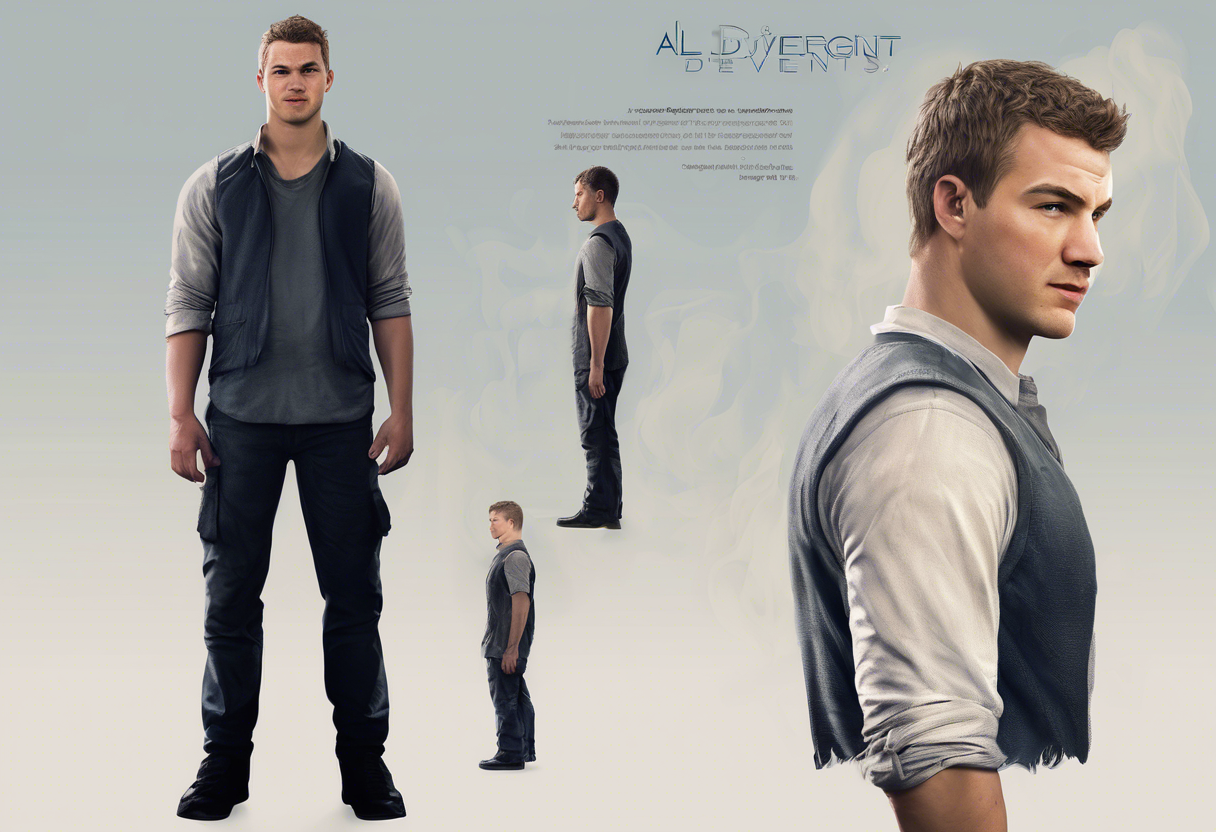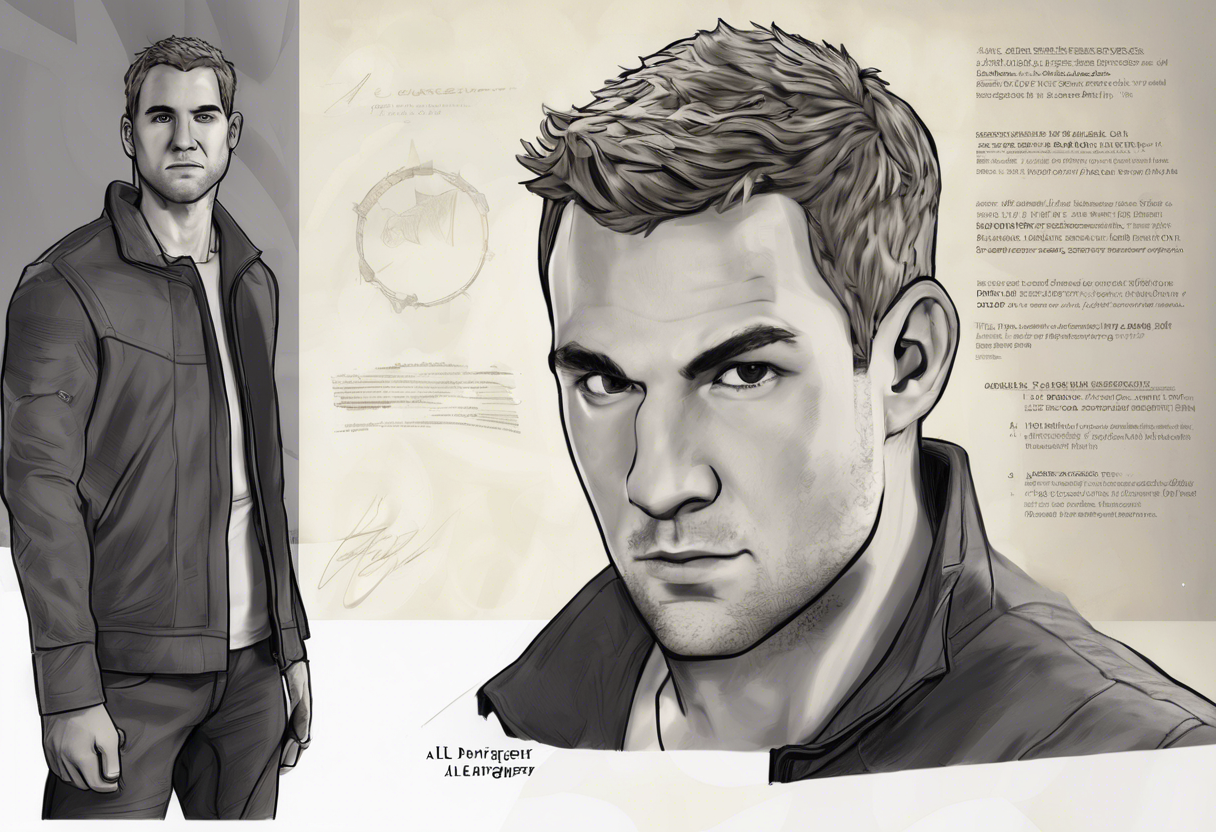Contents
Albert (Al) in the Divergent Series
Introduction
Albert, commonly known as Al, is a significant character in Veronica Roth’s Divergent series. He originates from the Candor faction, known for their values of honesty and transparency, but chooses to transfer to Dauntless, the faction that values bravery and fearlessness. This transition is a pivotal aspect of his character, reflecting his desire for change and his struggle with the expectations of his original faction.
Al is introduced as a kind-hearted and strong individual who is uncomfortable with the idea of hurting others, a trait that sets him apart in the aggressive environment of Dauntless [1][3]. Despite his physical size and strength, Al’s reluctance to engage in violent activities makes him an outlier among his peers. His backstory, though not extensively detailed, hints at a complex personality shaped by the strict honesty of Candor and the bravery of Dauntless.
Al’s role in the narrative is multifaceted. He serves as a friend and confidant to the protagonist, Tris Prior, and his interactions with her and other characters reveal the deeper themes of the series, such as the struggle with identity, the consequences of choice, and the importance of human connections.
Role in the Story
Al’s storyline is closely intertwined with Tris’s journey through the initiation process of Dauntless. As a transfer from Candor, Al faces significant challenges in adapting to the rigorous and often brutal training methods of Dauntless. His inability to perform well in the initiation tests and his aversion to violence create tension and conflict within the group [3][4].
One of the major decisions Al makes is his attempt to reconcile his feelings for Tris with his own inadequacies in the Dauntless environment. Al develops romantic feelings for Tris, but his sensitivity and inability to meet the aggressive standards of Dauntless make him feel unworthy of her affection [3].
Al’s relationships with other characters are crucial to his development. His friendship with Tris is built on mutual support and understanding, despite Tris’s eventual realization that she does not feel the same way romantically. His interactions with other initiates, particularly Peter, who is cruel and competitive, highlight the harsh realities of the Dauntless initiation process [3].
A key event in Al’s storyline is his involvement in a nighttime attack on Tris, orchestrated by Peter. This incident leads to a confrontation with Four, who punishes Al for his participation. This event marks a turning point in Al’s character development, as he grapples with guilt and the consequences of his actions [3].
Character Analysis
Al’s personality is characterized by his kindness, sensitivity, and physical strength. Despite his size and strength, Al is depicted as clumsy and warm, traits that contrast sharply with the typical Dauntless ideal of bravery and aggression [1][3].
Al’s motivations are rooted in his desire to belong and to prove himself in a new environment. His transfer to Dauntless is a quest for identity and acceptance, which is complicated by his inability to conform to the faction’s expectations. This internal conflict makes Al a relatable and sympathetic character.
One of Al’s significant strengths is his empathy and compassion. He is one of the few characters who genuinely cares about the well-being of others, even in the face of adversity. However, his flaws, such as his lack of confidence and his inability to assert himself in aggressive situations, often hinder his progress and relationships.
Throughout the series, Al undergoes significant development. He grapples with guilt, particularly after the nighttime attack on Tris, and this guilt shapes his subsequent actions and decisions. Despite his struggles, Al remains a loyal friend and a symbol of the human capacity for empathy and kindness.
Themes and Symbolism
Al embodies several key themes in the Divergent series. One of the most significant themes is the struggle with identity and the consequences of choice. Al’s transfer from Candor to Dauntless represents a search for self and a desire to break free from the constraints of his original faction. This theme is reflective of broader literary traditions where characters often seek to redefine themselves in new environments.
Al also symbolizes the theme of human connections and empathy. In a world where factions emphasize specific virtues over others, Al’s kindness and sensitivity highlight the importance of emotional intelligence and compassion. His relationships with Tris and other characters underscore the value of genuine friendships and the impact these connections have on personal growth and development.
Cultural Impact
Al’s character has had a notable impact on the cultural reception of the Divergent series. Fans have appreciated his complexity and the nuanced portrayal of his struggles. In the film adaptations, Al’s character has been portrayed by actor Christian Madsen, bringing his story to a wider audience.
Al’s influence on popular culture can be seen in the way his character challenges traditional notions of bravery and strength. His sensitivity and empathy serve as a counterpoint to the more aggressive and competitive characters in the series, offering a different model of masculinity and heroism.
Critical Reception
Critics and audiences have generally praised Al’s character for his depth and relatability. His storyline has been noted for its emotional resonance, particularly in the context of his relationships with Tris and the other initiates. However, some critics have argued that Al’s character could have been further developed, especially given his significant role in the early stages of the series.
The portrayal of Al in the film adaptations has also received mixed reviews. While some have appreciated the visual representation of his character, others have felt that the films did not fully capture the complexity of his personality and struggles as depicted in the books.
Legacy
Al’s enduring appeal lies in his relatability and the universal themes he represents. His character serves as a reminder of the importance of empathy, kindness, and genuine human connections in a world often dominated by aggression and competition.
In contemporary discussions, Al’s character continues to be relevant. He represents a model of masculinity that values sensitivity and compassion, traits that are increasingly recognized as essential in modern society. His story has inspired other works and character archetypes that challenge traditional notions of heroism and bravery.







